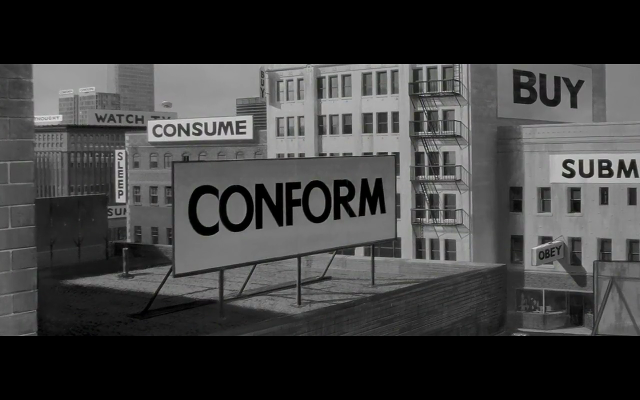The NYTimes wrote about a study on how the Chinese government mass fabricates posts on social networks to control public opinion. The studied group is the famed “50 Cent Party” (aka 50c).
Contrary to prior findings, these researchers reveal that these posts are not meant to confront or defend the government, but instead to distract attention away from timely political issues that could result in collective social action. Specifically:
… the 50c party engages in almost no argument of any kind and is instead devoted primarily to cheerleading for the state, symbols of the regime, or the revolutionary history of the Communist Party.
I’ve always thought the best propaganda blends in so well to its surroundings as to not draw any attention. For example, we all see political campaign slogans as discrete pieces of propaganda in the wild, and we can recognize them for what they are.

When we know somewhat was made to support a political campaign, it’s easy to put on one’s own “analysis cap” and cut it down from that perspective. We can detach ourselves from the message, and thus choose not to be influenced by it.
The best propaganda is not like this. It is not tactless and overt. It is polite and subtle. It’s not a loud bang of political radicalism, but a background rumble of conventional wisdom.

In this mass fabrication of social media, why distract, rather than argue? Well, as the researchers put it:
Distraction is a clever strategy in information control.
We have experienced distraction as a form of propaganda for many years, even here in the United States. It is an oft-used technique of the public relations industry. PR firms perform propaganda behalf of corporations as a professional service, and they recognize distraction — even better, entertainment — as one of the “tolerable” forms of propaganda.
How many posts in our US social media feeds are written, not by Chinese government employees, but by US corporate employees, promoting their own work, sometimes under the direction of their marketing departments? I wouldn’t be surprised if it is much more than a fraction of 1%.
“The conscious and intelligent manipulation of the organized habits and opinions of the masses is an important element in democratic society. Those who manipulate this unseen mechanism of society constitute an invisible government which is the true ruling power of our country.”
— Edward Bernays, author of Propaganda
Even if not the explicit intent of the corporate social media posts, the effect is to distract you from other competing products, ideas, or expressions. A system does not need a central conspirator to have very real effects. Whether a background buzzing sound is made by a hive of busy bees or by an electronic recording of bees flying, there is still, nonetheless, a background buzzing sound.
So, the next time you sigh, exasperated, after viewing a piece of overt political propaganda, be glad for one thing: that you actually see it. A piece of propaganda that you can actually recognize as such is the least of your worries. What should keep you up at night are all the things you see without knowing.
“It ain’t what you don’t know that gets you into trouble. It’s what you know for sure that just ain’t so.”
— Mark Twain
